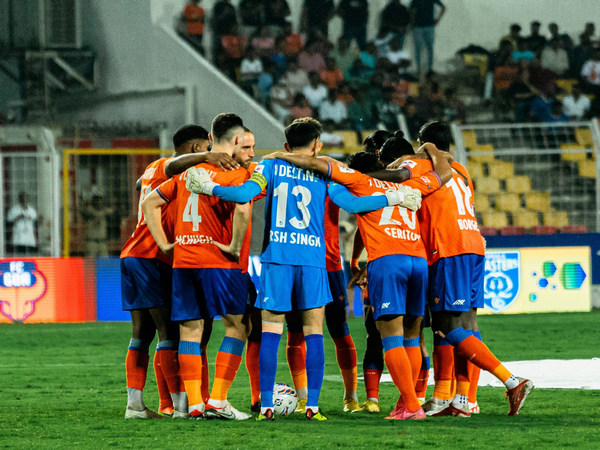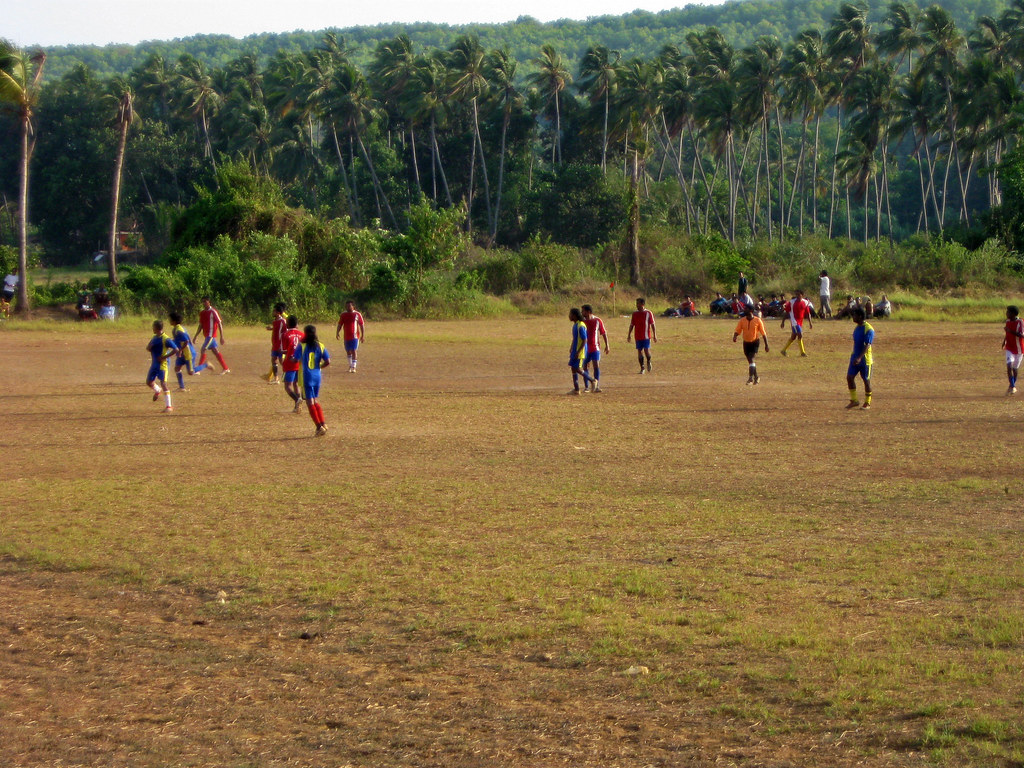
Goa, known for its beautiful beaches, rich culture, and vibrant nightlife, is also a powerhouse of sports, with football reigning supreme. The love for football in Goa rivals its passion for food and music, making the sport an integral part of Goan identity. This small state boasts a football culture as strong as those found in West Bengal and Kerala, cementing its place in Indian football history.
The story of football in Goa dates back to 1883 when an English priest introduced the game to the state. The simplicity of football and the Portuguese cultural influence led to its rapid adoption. By 1900, the first recorded football match was played in Panjim, and in 1905, Boys Social Club, the first football club, was established in Colva, Salcete.
As the love for the game spread, more clubs were founded by passionate individuals like the Churchill brothers and corporate entities like Dempo. In 1959, the Goa Football Association, initially called Associacao Futebol de Goa, was formed to organize and promote the sport. The first major tournament, the Bandodkar Gold Trophy, was held in 1970, gaining national recognition. Goa hosted the Santosh Trophy for the first time in 1972 and clinched its first victory in 1982.
From humble beginnings, Goan football clubs have become some of the best in India, rivaling the big names like East Bengal and Mohun Bagan of Kolkata. Prominent clubs such as Salgaokar, Churchill Brothers, Dempo, Vasco, and Sporting Clube de Goa have made significant strides, raising the standard of football in the region.

Recent developments highlight the progress of Goan football. Dempo's exchange program with Portuguese giants FC Porto signifies a growing international connection, enhancing local players' skills and exposure. The affinity for Portugal is evident, with Goans passionately supporting the Portuguese national team during international events, turning Goa into a mini-Portugal with flags and celebrations.
Insights from football fraternity
Denzil Franco: Evolution and future of Goan football
Former national player Denzil Franco sheds light on Goan football's rich culture and its evolution. "Football is deeply rooted in Goan society. It’s more than a sport; it’s a part of our identity," he says. Franco highlights the impact of the Indian Super League (ISL), which has brought structure and visibility, raising the standards of play and infrastructure.
Franco is optimistic about the future, citing investments in youth academies and grassroots programs. "Better training facilities, stadiums, and youth development programs are crucial. Increased sponsorship and media coverage provide financial stability, allowing for professional management and player contracts," he explains.
He also emphasizes the broader impact of national leagues, providing local players with opportunities to compete at higher levels, boosting their development. "Hosting national and international tournaments in Goa fosters community interest and participation," Franco remarks.
Clifford Miranda: Goan football culture
ISL coach and former national player Clifford Miranda describes football as an integral part of Goan life. "Football is played everywhere, from schools to neighborhoods. Every village has at least one registered club with the Goa Football Association (GFA)," he says. These village clubs and tournaments serve as nurseries for young talent.
Miranda highlights the unique style of Goan football. "We prefer possession-based football, keeping the ball and playing attractively. Goan players are known for their technical skills developed in schools and neighborhoods," he adds.
Jonathan De Souza: Football’s evolution
Jonathan De Souza, Vice President of the GFA, discusses the dramatic changes in football. "Today, there's more emphasis on diet, nutrition, and technology. Professionalism has transformed the game, making it a full-time job with clubs monitoring every aspect of a player’s life," he explains.
De Souza is hopeful about the potential of Goan football, emphasizing the importance of structured leagues and tournaments for player development. "The more players play, the better they get. Reaching the AFC norm of 28 games per season will significantly help players develop," he states.
Valanka Alemao: On challenges and prospects
Valanka Alemao, an AIFF executive member, reflects on the deep-rooted football culture in Goa. "Football has always been a phenomenon here. Clubs like Churchill Brothers have signed top foreign players and achieved significant success," she notes.
Alemao acknowledges the challenges posed by politics in Goan football but remains hopeful about the future. "Women's football has a lot of potential, and initiatives like Khelo India are promoting it. Structured youth development is crucial, and creating a pyramid structure with under-13, under-15, and under-17 leagues will nurture talent," she explains.
Alemao emphasizes the importance of AIFF support and recent initiatives to ensure a safe environment for female players. "We need more women involved at all levels, and providing a safe and supportive environment for players is essential," she adds.
Shrinivas Dempo: On embracing professionalism
Shrinivas Dempo, President of Dempo Sports Club, speaks about the passionate support for football in Goa. "Football is more than a passion here. However, Goan football needs to embrace professionalism fully," he says. Dempo highlights the need for better infrastructure and tapping into the commercial side of football.
Despite challenges, Dempo is optimistic about the future. "Harnessing community support and implementing global best practices can help Goan football return to its past glory. Embracing sports science, nutrition, and technology is essential for players and coaches," he emphasizes.
Dempo also speaks about the broader context of Indian football. "The revival of legacy tournaments like the Bandodkar Trophy and the promotion of I-League teams are positive steps. Encouraging more leagues and tournaments across all age groups in Goa will inspire local youth," he concludes.
The insights from key figures in Goan football paint a hopeful picture of the sport’s future in the region. With ongoing improvements in infrastructure, youth development, and increased international connections, Goan football is poised for a resurgence. The passionate support of the local community, combined with strategic investments and professional management, will ensure that Goa continues to be a formidable force in Indian football.